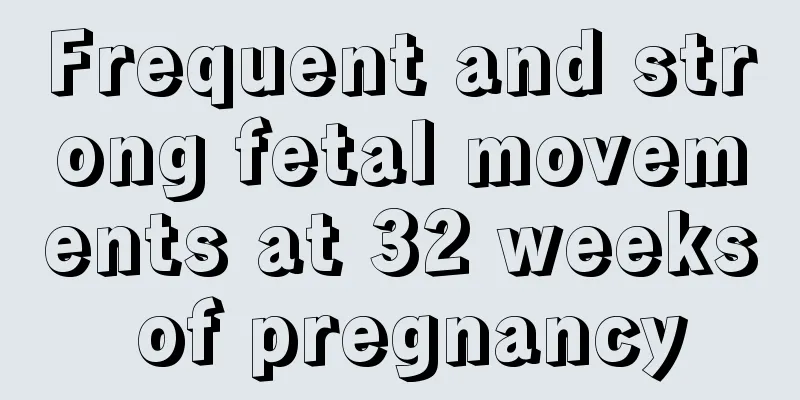What to eat during pregnancy with high blood pressure

|
Maternal hypertension and high blood sugar during pregnancy are both worrying diseases during pregnancy. Because gestational hypertension is very harmful, it can easily put the fetus and the pregnant woman's life in danger, and it is also difficult to give birth smoothly. If gestational hypertension is detected, timely treatment should be taken and appropriate measures should be taken to minimize the harm. Next, let’s take a look at gestational hypertension! 1. Establish and improve maternal and child health care networks at all levels, and do a good job in prenatal care. Blood pressure should be measured during early pregnancy check-ups, and regular check-ups should be conducted thereafter. Blood pressure, weight, and urine routine should be measured each time. Timely detection of abnormalities and timely treatment can significantly reduce the incidence of eclampsia. 2. Pay attention to strengthening the nutrition and rest of pregnant women. Take more protein, vitamins and various nutrients during pregnancy. In the past, it was believed that calcium supplementation (600-2000 mg/d) and/or low-dose aspirin (50-150 mg/d) after 20 weeks of pregnancy can reduce the incidence of preeclampsia. However, Levine et al. (1997) summarized the case control of 13,231 pregnant women taking calcium in 3 articles and 22,064 pregnant women taking aspirin in 3 articles and found that neither had the effect of reducing preeclampsia. 3. Strengthen monitoring of high-risk groups. Those with mean arterial pressure >85 mmHg in mid-pregnancy and a positive roll over test are more likely to suffer from preeclampsia in late pregnancy. Patients with primary hypertension or kidney disease are prone to preeclampsia during pregnancy. Those with a history of preeclampsia are more likely to have preeclampsia again in the next pregnancy. Pregnancy checkups should be strengthened for the above-mentioned groups of people. Pregnant women with gestational hypertension can eat more foods that are beneficial to lowering blood pressure, preferably low-salt, potassium-containing and calcium-supplementing foods, such as tofu, soy milk, red dates, walnuts, peanuts, etc. In order to prevent sudden attacks of high blood pressure in pregnant women, you should not eat too much in your daily diet. You can occasionally keep your stomach fasting, which is a good way to prevent attacks of high blood pressure. |
<<: How to treat ovarian cysts?
>>: Why do women have chest pain?
Recommend
Will ectopic pregnancy cause breast pain?
The symptoms of ectopic pregnancy are quite diver...
Does thick leucorrhea mean I’m pregnant?
Under normal circumstances, women's leucorrhe...
Can I eat donkey-hide gelatin during menstruation? What are the effects?
Donkey-hide gelatin is a common health product, a...
I have leg pain just one to two weeks into my pregnancy.
Leg soreness during the first one or two weeks of...
What causes premature ovarian failure?
The ovaries are the main reproductive organs of w...
Symptoms and treatment methods of Yin deficiency constitution
Many female friends are relatively tall, and natu...
Do nipples get darker during pregnancy?
A woman's body's hormone levels and funct...
Introduction to irregular menstruation after childbirth
Many female friends will find a problem, that is,...
Why do breasts hurt after ovulation?
Many women will find that their breasts hurt afte...
Can vaginal ultrasound cause miscarriage?
Both vaginal ultrasound and B-ultrasound are medi...
What to eat during menstruation to discharge more blood
There is also a lot of menstrual discharge during...
How long does it take for lochia from a caesarean section to be discharged?
In the past, most women gave birth through natura...
At what age do girls develop breasts and breast enhancement methods
Breast enhancement is a topic that many of us wom...
How to do yoga breast enhancement exercises
In daily life, many beauty-loving women like to d...
What are the treatments for cervical inflammation?
Many people start seeking medical advice when the...









